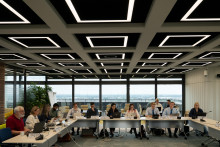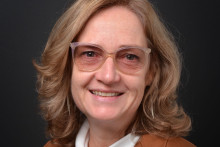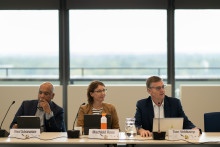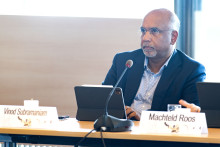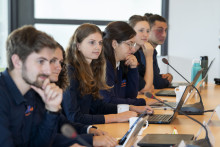In their letter to the Executive Board, the University Council does not beat about the bush. There are concerns among the academic staff at the UT about the Twente Graduate School, the council writes in an unsolicited advice. It seems that the current way TGS operates and provides support is causing growing frustration among ground-level researchers across UT, making the situation unsustainable’, the council writes. ‘TGS staff are even receiving hate mail, which is unacceptable and a clear sign for things to change before tensions escalate.’
Frustrations and bottlenecks
Where exactly the shoe pinches becomes clearer elsewhere in the council's unsolicited advice. For example, there are concerns and frustrations about the effectiveness of courses offered by TGS – and that it is often not clear that exemptions can also be requested. And it is precisely that process of applying for an exemption that is experienced as 'particularly difficult and bureaucratic'.
The University Council also raised practical bottlenecks regarding the defence of dissertations. To schedule this, PhD students depend on the availability of the rooms and the beadles who supervise the ceremony. According to the University Council, the waiting time is currently about six months. That hurdle must be removed, the council believes. ' The only obstacle to this should be a content-based hindrance from the candidate’s side but not an infrastructural hindrance.’
And so the council shares even more concerns and advice in the letter. For example, TGS could become the parent organization of P-NUT, TGS can play an 'essential role' in monitoring the power dynamics between PhD student and supervisor by setting clear requirements. According to the council, TGS should also monitor PhD trajectories as 'lightweight' and with as little bureaucracy as possible. In addition, the University Council wants to start the discussion about whether it would not be wise to place TGS in the Centre for Educational Support (CES) service department.
'Us-versus-them culture'
During Wednesday morning's meeting, however, the University Council's argument was much milder than the wording in the letter. During the discussion with the Executive Board, the council seemed to hint more at an image problem of TGS as a supporting organisation for PhD and EngD candidates.
‘After talking to TGS dean Ariana Need, it has become clear to us that the tasks of TGS are important and necessary,’ said council member Aditya Pappu. 'But the research community doesn't really know that. It would be good to make the work of TGS more visible. We notice that there is currently an us-versus-them culture.'
Pappu then reiterated some of the concerns from the letter, about the logistical problems with scheduling PhD defences. But he also dropped that supervisors of PhD students fall short in supervision because of too high a workload. TGS could also play a role in this, he suggested. 'To enforce clear accountability towards PhD students.'
Tour of faculties
Rector Tom Veldkamp said that he took note of the concerns and advices raised. 'There are certainly valid points, especially when it comes to the prevailing culture, the provision of information and the us-versus-them mentality. That sentiment is more prevalent in some faculties than others.'
The rector announced that he will be visiting the faculties to discuss the role of supervisors, PhD students and TGS. This initiative was well received by the University Council. ‘More dialogue is needed,’ Pappu said. 'Every second we spend talking is one second less spent on frustration.'
The letter from the University Council can be seen as a kind of stone that is thrown into the pond. The role and tasks of TGS will be discussed more often in discussions between the University Council and the Executive Board in the upcoming period.


